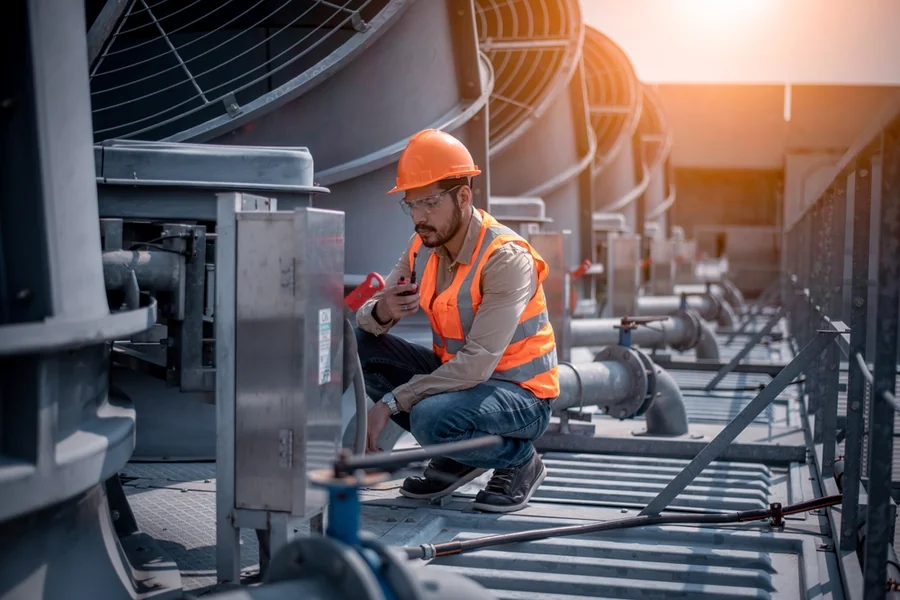Indoor comfort relies heavily on a functioning HVAC system, but many people underestimate how much of that comfort is tied to the air filter. This small, often overlooked component plays a crucial role in keeping air clean, energy bills manageable, and the system itself running efficiently. When filters are not replaced regularly, both performance and indoor air quality suffer. We will explore why air filter replacement is one of the simplest yet most important steps in maintaining HVAC systems and how it impacts overall comfort, health, and efficiency.
Why Air Filter Replacement Matters
Improving Indoor Air Quality
Air filters are designed to capture dust, pollen, pet dander, mold spores, and other particles circulating in the air. Over time, these particles accumulate, and if the filter is not replaced, they begin to circulate back into the home or business. This can trigger allergies, worsen asthma, and create an unhealthy indoor environment. By replacing filters consistently, occupants breathe cleaner air, which contributes to better overall health. Even individuals without respiratory conditions can notice a difference in comfort, as cleaner air reduces the presence of odors and lingering pollutants.
An efficient filter also helps reduce the spread of bacteria and viruses by trapping airborne contaminants before they move throughout the property. For those relying on Summerlin HVAC services, staying on top of filter replacement makes a significant difference in maintaining fresh, healthy indoor air. This makes filter replacement not just a matter of comfort but also of safeguarding health for everyone indoors.
Protecting the HVAC System
A clogged air filter makes an HVAC system work harder than it should. When the system struggles to push air through a dirty filter, the blower motor and other components experience unnecessary strain. This can lead to mechanical issues, breakdowns, and a shorter system lifespan. Regular filter replacement acts as a protective measure, ensuring that air can move freely and that parts are not overworked. For property owners, this means fewer repair costs and a lower risk of unexpected system failures. A clean filter reduces the buildup of dirt on internal components, such as coils and fans, helping the entire system stay in good condition. Overlooking filter replacement can seem like a minor oversight, but it often results in costly repairs or even early system replacement. Taking the time to swap out filters regularly is a simple way to protect an expensive investment in heating and cooling.
Boosting Energy Efficiency
When filters are clogged, the system has to use more energy to push air through, which increases utility bills. A clean air filter, on the other hand, allows for smoother airflow, reducing strain on the system and cutting down on energy use. This translates to real savings month after month. Energy efficiency isn’t just about lower bills, though—it also supports environmental responsibility by reducing overall energy consumption. By consistently replacing filters, property owners make their HVAC systems operate at peak efficiency. This proactive approach ensures that the energy consumed is used effectively for heating and cooling, not wasted in battling against restricted airflow. Over time, the cost of purchasing new filters is significantly less than the amount saved in energy bills. Filter replacement is one of the most cost-effective ways to ensure a system runs efficiently while keeping energy use under control.
Maintaining Consistent Comfort
HVAC systems are designed to maintain steady temperatures throughout a property, but when filters are dirty, airflow becomes uneven. This often results in hot and cold spots, where some rooms feel comfortable while others remain too warm or too cool. Replacing filters helps maintain balanced airflow, ensuring that every area benefits from consistent heating or cooling. This contributes to a more pleasant indoor environment for both living and working spaces. Comfort isn’t just about temperature, either—it’s about air that feels fresh and easy to breathe. A clean filter helps prevent musty odors and reduces the chance of circulating dust, making the indoor environment more inviting. By keeping up with filter changes, property owners can ensure that their HVAC systems deliver the consistent comfort they were designed to provide. This small effort directly translates into a noticeable difference in how enjoyable the space feels.
Extending the Lifespan of the System
Every HVAC system represents a significant financial investment, so it makes sense to take steps to extend its useful life. One of the simplest ways to achieve this is through regular filter replacement. When filters are clogged, the system works under constant pressure, which leads to wear and tear on critical parts. Over time, this stress shortens the system’s overall lifespan, meaning it will need to be replaced sooner. Clean filters reduce strain, allowing the system to operate smoothly for longer periods. This not only delays the need for a costly replacement but also ensures that the system continues to perform effectively throughout its life. Consistent maintenance, starting with filter replacement, keeps the entire unit running more reliably. Ultimately, the effort to replace filters is an easy and affordable practice that pays off by protecting the HVAC system for years to come.
Air filter replacement may seem like a small maintenance task, but its importance cannot be overstated. From improving indoor air quality and protecting the HVAC system to boosting energy efficiency and maintaining consistent comfort, this simple step has far-reaching benefits. While it requires minimal effort and expense, the payoff is significant in terms of healthier air, lower costs, and longer-lasting equipment. Staying committed to routine filter changes is one of the most effective ways to protect comfort and maintain a dependable HVAC system.

